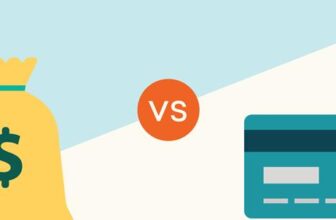
Financial freedom is a goal that many people aspire to achieve. It involves having enough savings, investments, and passive income to cover your expenses and live life on your terms. However, reaching this level of financial independence requires careful planning, discipline, and the implementation of effective strategies. In this article, we will explore the top 5 tips for achieving financial freedom, providing you with actionable advice to secure your financial future.
1. Mastering Budgeting and Saving:
To achieve financial freedom, it is crucial to develop strong budgeting and saving habits. Here are some key strategies to get started:
Understanding Your Expenses:
Start by analyzing your monthly expenses and categorizing them into essential and non-essential items. This will help you identify areas where you can cut back and save money.
Creating a Realistic Budget:
Based on your expense analysis, create a budget that aligns with your financial goals. Allocate funds for necessities, savings, investments, and discretionary spending. Stick to this budget to ensure you’re on track towards financial freedom.
Automating Savings:
Make saving a priority by automating regular transfers from your checking account to a separate savings account. This way, you’ll be consistently building your savings without the temptation to spend.
Embracing Frugality:
Adopting a frugal mindset can significantly impact your financial journey. Look for ways to reduce expenses, such as cooking at home, using public transportation, and shopping for deals. Small changes can lead to significant savings over time.
2. Investing for Long-Term Growth:
Investing is a vital component of achieving financial freedom. Here’s how you can make the most of your investments:
Setting Clear Financial Goals:
Define your financial objectives and timeframe. Are you saving for retirement, a down payment on a house, or your child’s education? Establishing clear goals will help you determine the appropriate investment strategies.
Diversifying Your Portfolio:
Spread your investments across different asset classes, such as stocks, bonds, real estate, and mutual funds. Diversification reduces risk and increases the potential for long-term growth.
Researching and Analyzing Investments:
Before investing, conduct thorough research on potential opportunities. Understand the market, evaluate historical performance, and assess the risk-reward ratio. Seek advice from financial professionals if needed.
Taking Advantage of Tax-Advantaged Accounts:
Maximize your tax benefits by contributing to retirement accounts like 401(k)s and IRAs. These accounts offer tax advantages and can accelerate your path to financial freedom.
3. Diversifying Your Income Streams:
Relying on a single income source can limit your financial growth. Here’s how you can diversify your income:
Exploring Side Hustles:
Consider taking on a side hustle or freelancing gig to earn additional income. Leverage your skills or hobbies to monetize your expertise.
Passive Income Opportunities:
Look for passive income streams such as rental properties, dividend-paying stocks, or creating digital products. Passive income provides a steady cash flow and reduces dependence on active work.
Building Multiple Streams of Income:
Combine different income sources, such as salary, rental income, dividends, and royalties. This diversification ensures stability and provides a cushion during economic fluctuations.
4. Minimizing Debt and Managing Credit:
Debt can hinder your progress towards financial freedom. Follow these tips to manage your debt effectively:
Prioritizing High-Interest Debt:
Focus on paying off high-interest debts first, such as credit cards or personal loans. Make larger payments towards these debts while paying the minimum on low-interest loans.
Consolidating and Refinancing:
Consider consolidating multiple debts into a single loan with a lower interest rate. Refinancing your mortgage or student loans can also help reduce monthly payments and save money in the long run.
Maintaining a Good Credit Score:
A strong credit score opens doors to favorable interest rates and better financial opportunities. Pay your bills on time, keep credit card balances low, and regularly monitor your credit report for any errors.
5. Continuously Educating Yourself:
Financial education is a lifelong journey. Here’s how you can expand your financial knowledge:
Reading Books and Blogs:
Immerse yourself in personal finance literature. Read books by renowned authors and follow reputable financial blogs to stay updated on the latest trends and strategies.
Attending Seminars and Webinars:
Attend seminars, webinars, and workshops conducted by financial experts. These events provide valuable insights and allow you to interact with like-minded individuals.
Seeking Professional Advice:
When facing complex financial decisions, seek advice from certified financial planners or investment advisors. Their expertise can help you make informed choices and optimize your financial strategies.
FAQs (Frequently Asked Questions):
How long does it take to achieve financial freedom?
Achieving financial freedom is a personal journey that varies for each individual. It depends on factors such as income, expenses, savings rate, and investment performance. However, with discipline and effective strategies, it’s possible to make significant progress within a few years.
Can I achieve financial freedom without investing?
While investing can accelerate your path to financial freedom, it’s not the only route. By adopting strong budgeting and saving habits, minimizing debt, and diversifying your income, you can still achieve financial independence over time.
Should I prioritize paying off debt or saving for retirement?
It’s essential to strike a balance between paying off debt and saving for retirement. While high-interest debt should be prioritized, it’s crucial not to neglect retirement savings. Consider allocating a portion of your income to both objectives simultaneously.
What are some common mistakes to avoid when pursuing financial freedom?
Some common mistakes to avoid include excessive spending, failing to budget effectively, taking on unnecessary debt, and neglecting to create an emergency fund. Additionally, avoiding impulsive investment decisions and seeking professional advice when needed can prevent costly mistakes.
How can I stay motivated on my journey to financial freedom?
Staying motivated can be challenging, but setting specific goals, tracking your progress, and celebrating milestones along the way can help. Surround yourself with a supportive community and constantly remind yourself of the benefits and freedom that financial independence brings.
Can anyone achieve financial freedom?
Yes, anyone can achieve financial freedom with the right mindset, discipline, and implementation of effective strategies. It may require sacrifices and dedication, but the rewards of financial independence are well worth the effort.
Conclusion:
Achieving financial freedom is a journey that requires careful planning, discipline, and continuous learning. By mastering budgeting and saving, investing wisely, diversifying income streams, managing debt, and expanding financial knowledge, you can take control of your financial future. Remember that financial freedom is attainable for everyone, and with dedication and perseverance, you can secure a brighter and more prosperous tomorrow.




